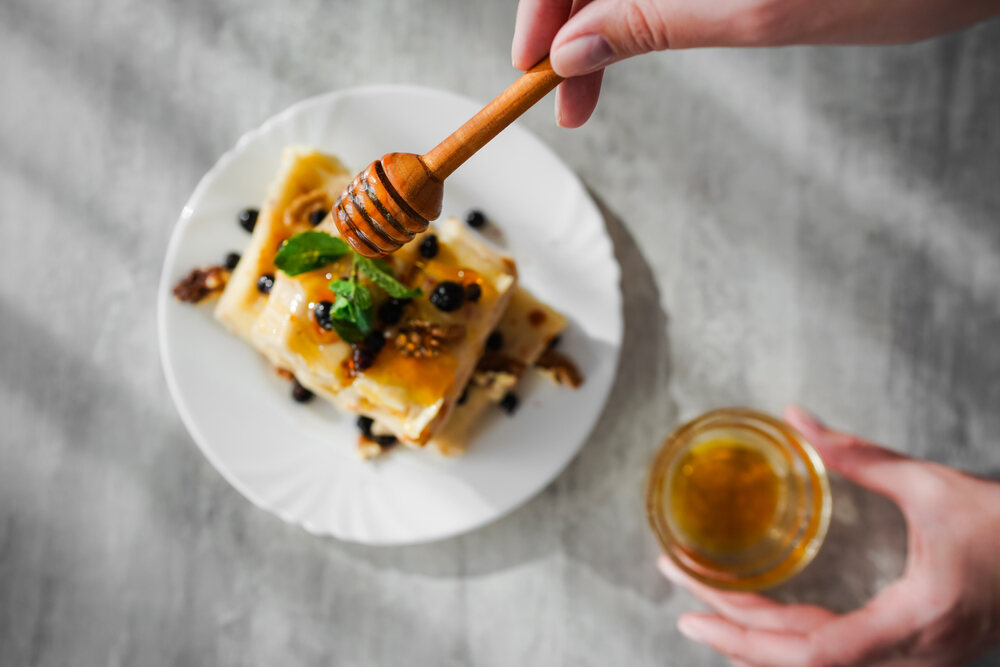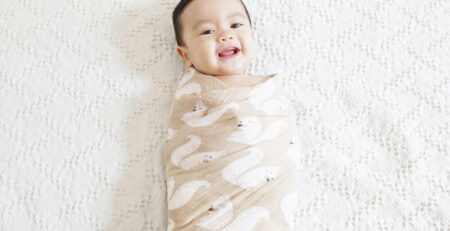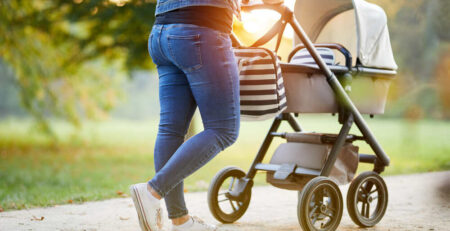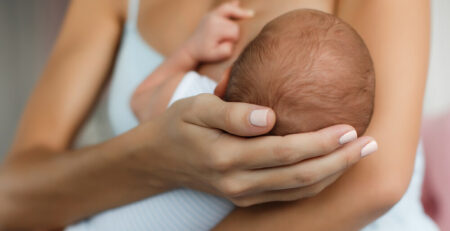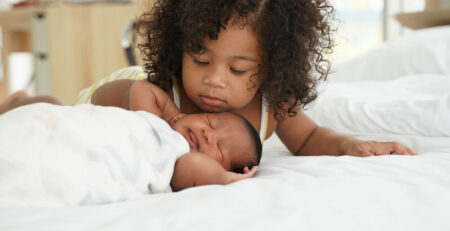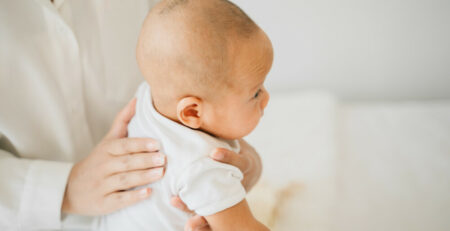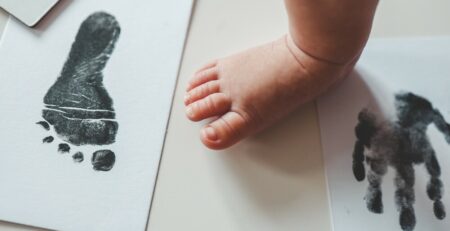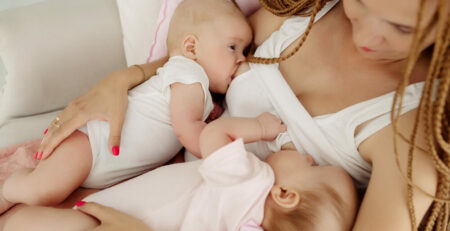Breastfeeding Food Tips: Can I Eat Honey While Breastfeeding?
Motherhood comes with its fair share of uncertainties, and it’s completely natural to be cautious about what you consume during this time. Your baby’s well-being is, and always will be, your top priority.
One question that often arises among new moms is, “Can I eat honey while breastfeeding?” While it’s not recommended to feed honey to babies under a year old, it’s safe for new moms to enjoy this natural sweetener even if they’re breastfeeding. This may seem confusing at first, but we’re here to explain!
Join us as we explore the world of honey and its relationship with breastfeeding. We’ll provide you with information, insights, and expert guidance to help you make informed choices about your diet to help keep you and baby nourished and healthy.
Is Honey Safe While Breastfeeding?
First thing first, it is completely safe to eat raw honey while breastfeeding!
Speaking to Verywelll Family, Jessica Madden, MD, pediatrician, neonatologist, IBCLC, and medical director at Aeroflow Breastpumps shares that “There are no risks to a mother who eats honey while breastfeeding and it’s safe for babies to drink the milk of mothers who have consumed honey.”
So, whether you love to drink tea with honey while breastfeeding, want to whip up a home remedy for a cough, or simply love honey as an alternative to artificial sweeteners, you’re in luck.
This advice applies to all types of honey – yes, there are a lot! So you can eat manuka honey while breastfeeding if you want something with more antiseptic properties or enjoy your local wildflower honey as you please.
What About Botulism?
Many new moms are hesitant to eat honey during or after their pregnancy because of the risk of botulism. However, while babies under a year old should never have raw honey, it is fine for breastfeeding mothers.
As KidsHealth explains, there is a type of bacteria (called Clostridium) that causes infant botulism that can be found in honey. Infant botulism can cause muscle weakness, with signs like poor sucking, a weak cry, constipation, and decreased muscle tone (floppiness). For this reason, babies under the age of 12 months should not be given honey.
Older children and adults can break down Clostridium botulinum spores and other potential toxins so honey doesn’t cause any harm. When a mother eats honey, her body digests it and breaks down any of the harmful botulism spores, meaning it won’t be passed through breast milk!
Practicing Safe Food Habits With Baby
While breastfeeding moms can have as much honey as they want, it’s still best to be cautious around baby. If you’ve just had honey, it’s best to wash your hands before handling baby or his or her bottle. If baby is getting curious about new foods, make sure honey (and anything you may put it on or in) is well out of reach.
These extra precautions help ensure baby doesn’t accidentally ingest any honey before their body is ready to properly digest it. Even a tiny taste of honey can be dangerous for babies. If you do think your baby has had honey and they begin to show symptoms of botulism it is important to contact their pediatrician right away.
Benefits of Honey for Breastfeeding Moms
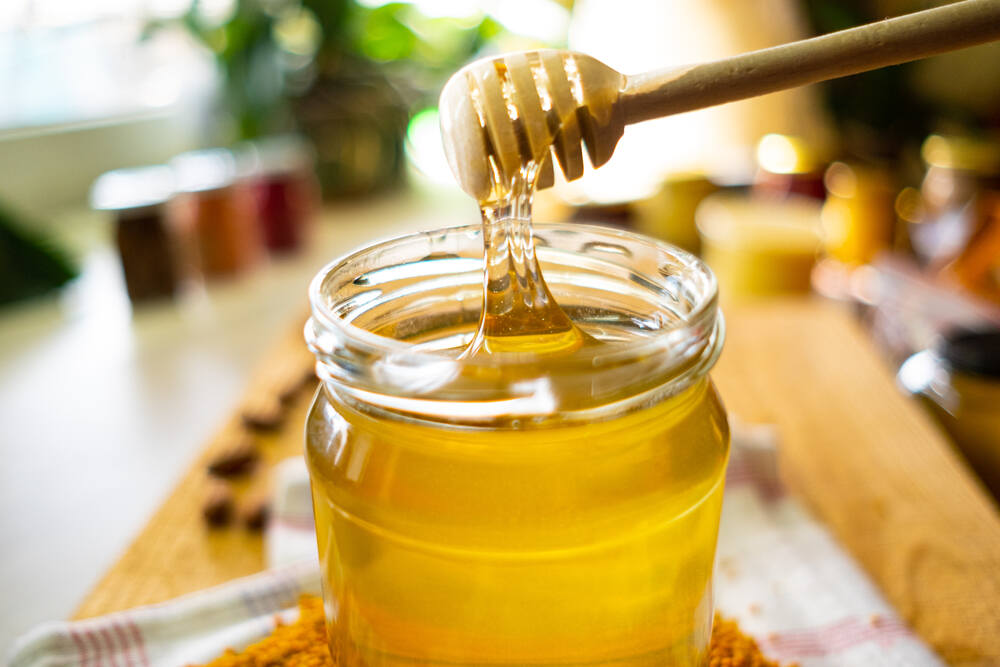
Now that you know it’s safe to eat honey while breastfeeding, you hopefully have more peace of mind adding it to your nightly cup of tea or making your breakfast a little sweeter. There’s no denying that honey is delicious, but it’s also a very healthy food that new moms can incorporate into their diet.
While there’s no direct benefit of eating honey for a mother’s milk supply, parents (dads too!) may benefit from this addition because if its:
- Anti-inflammatory properties: According to the Mayo Clinic, honey is used as an anti-inflammatory, antioxidant, and antibacterial agent. It can provide a much-needed boost to your immune system, especially during the cold winter months.
- Nutritional value: Though honey is mainly pure sugar, it is a healthier alternative for sweetening your foods when compared to artificial sweeteners. It’s also better for your blood sugar than other sweeteners, sugar included.
- Calming effects: The Mayo Clinic also shares that studies suggest that honey might offer antidepressant, anticonvulsant, and anti-anxiety benefits. It’s no wonder drinking tea with honey is so soothing.
Incorporating Honey Into Your Diet
As we said before, while honey doesn’t have any effect on milk supply or breastfeeding in general, it can still be a good idea to add it to your diet. Consider eating honey with some foods that can improve your milk supply. Here are a few ideas to get started:
- Add honey to your oatmeal in the morning
- Drizzle honey over nuts, or try honey-roasted nuts as a snack
- Add honey to your tea and stay hydrated throughout the day
Honey is truly a powerhouse ingredient. If you’re not feeling well, or have a cough, a spoonful of it can soothe your throat and boost your immune system. If you need a way to relax at night after putting baby to bed, a cup of tea with honey can help calm any nerves and make bedtime a breeze.
While it’s always good to remember that a breastfeeding baby eats what you do (and that’s why things like coffee and alcohol should be had in moderation by breastfeeding moms), honey is completely safe for new moms to eat. So much so that there is no limit, so you can have as much or as little honey as your heart desires!
The same is true for pregnant moms – honey is a safe ingredient to enjoy when you’re expecting.
The time spent nurturing your little one is precious. Commemorate the special bond with a piece of timeless breast milk jewelry. Explore our breast milk keepsake that lasts a lifetime and represents the beautiful connection between mother and baby. Shop unique breastmilk jewelry today from KeepsakeMom.

